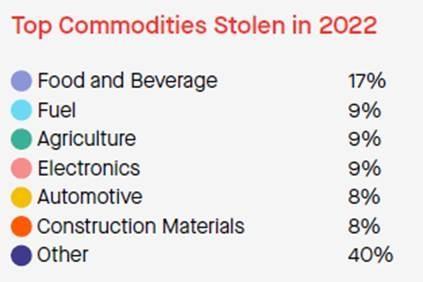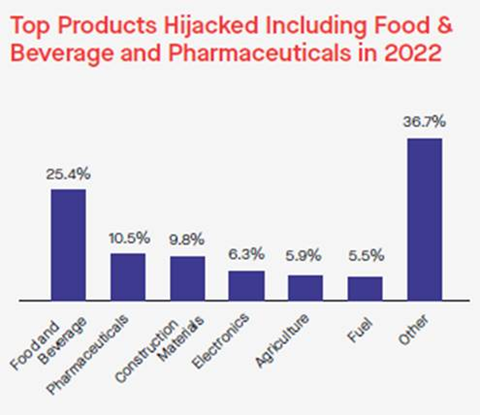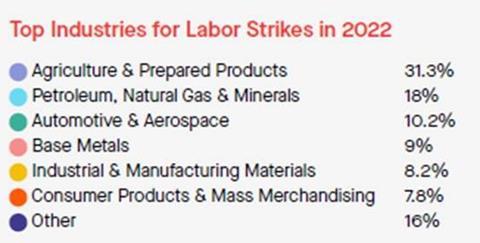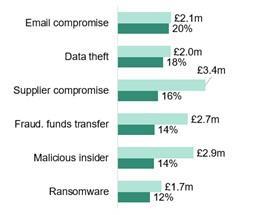BSI has published its annual Supply Chain Risk Insights Report, which finds that food and beverages are the most stolen commodity globally, with the amount of these commodities being stolen increasing by 2.8% according to data from BSI.
Agriculture, oil and gas and the automotive sectors were among the most affected.



Carrier fraud on the rise
The findings support research published earlier this month by TT Club. It considers criminal fraud in its many and various manifestations within the global supply chain as a primary and growing threat.
The almost exclusive use of online facilities to process business transactions allows a myriad of fraudulent pursuits to find opportunities within the complexities of the global supply chain.
Carrier fraud, in which criminals imitate hauliers and other sub-contractors, including drivers with falsified documents, accounted for 84% of TT claims involving fraud or deception in 2022.
“No one – from freight forwarders, shippers, and carriers to container owners and logistics, ports, warehouse and depot operators – should underestimate how lucrative an industry fraud is. Using sophisticated, low-risk tactics, fraudsters can easily steal large amounts of money or consignments of cargo,” says Mike Yarwood, managing director, Loss Prevention at TT.
“Incidents of fraud that target international supply chains across the globe are not perpetrated by opportunistic criminals working in isolation but in the majority of cases the work of sophisticated organised crime gangs.
”They have well-honed methodologies that are adaptable in the face of detection devices and changes in operating procedures, as the experience of recent disruption to the freight transport system has proved. Our awareness and readiness to protect our businesses must be stepped-up.”




















No comments yet